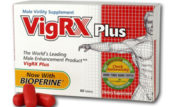The human cell is a thing of beauty. Without it, everything stops. There are about 100 trillion cells in the human body. And they give life.
Growth hormone is a protein-based peptide hormone responsible for cell growth and regeneration. Growth hormone is plentiful when we’re young, with bone growth and supple skin. Yet it tapers off as we age, at about ten per cent each decade after 40. This in part explains why we lose hair and form wrinkles, lose bone density, and even gain weight.
Recently, HGH supplements have gained medical attention for their ability to encourage the body to produce growth hormone. This is good news, because a recent study suggests that a mutant protein responsible for a premature aging condition may also age otherwise healthy people. In other words, the rate at which you age might already be set by your genes.
Why Aging Might Be Pre-Determined
In the study, published in The Journal of Clinical Investigation, researchers focussed on the interaction between a mutant protein called progerin, and telomeres. The latter are protective caps on the ends of chromosomes, best illustrated as the plastic tips on the ends of shoe laces. And as researchers already knew, cells die when the telomeres shorten.
Progerin is a mutated version of a normal cellular protein called lamin A, whose job it is to maintain the nucleus of the cell, which holds genetic information. Lamin A is coded by a normal LMNA gene. In rare cases, the LMNA gene mutates and leads to a premature aging disorder called progeria. Symptoms include hair loss, hardened arteries and skeletal abnormalities – in early childhood.
With about one case per one to four million people, progeria is rare. That’s good, because patients rarely live past their early twenties with this debilitating illness. And it’s received attention in recent years; progeria may have inspired The Curious Case of Benjamin Button, both the short story and the 2008 movie starring Brad Pitt.
In conducting the study, scientists looked at millions of cells from seven healthy people, aged ten to 92. They examined the cells for a year. Among their findings, they found that progerin accumulates as telomeres shorten. That was no surprise. The researchers knew that if the cells made progerin, RNA splicing had been altered.
RNA splicing is cellular synthesis of protein and how cells process genetic information.
The researchers already knew that short telomeres modify the splicing process. But they found that splicing changes also occurred when the gene was normal. In other words, the same mechanism that triggers premature aging, as seen in progerin, may also cause cellular aging in otherwise healthy individuals.
Cells are programmed with a limited life span. And you might age earlier than other people simply because it’s in your genes.
About HGH Supplements
HGH supplements are dietary supplements, of amino acids and natural ingredients, designed to stimulate the pituitary gland to produce growth hormone. They’re not synthetic HGH injections, rather, they encourage the body to release growth hormone naturally, with benefits that may include:
- fewer wrinkles
- restored hair color (and condition)
- more lean muscle mass
- less fat storage
- better cognitive function
- boosted sex drive
Growth hormone stimulates cell growth and regeneration. Just as some of us are predetermined to age faster than others, an HGH releaser might counter the cells lost in the aging process. Cells die, yet are replaced. Skin sags, and is then tightened. And your outlook on life is suddenly bright.
Why should you care about this? Because as we’ve seen, cell growth is not passive. Yes, healthy lifestyle, weight management and abstinence from smoking count for something. But if you’re programmed to age early, you’re gonna age early. And unless you want to muck around with DNA, nothing is gonna stop it.
HGH supplements don’t interact with DNA. They’re simply designed to replace cells that would otherwise die. With more cells may come a younger appearance, and with that, feelings of hope.




